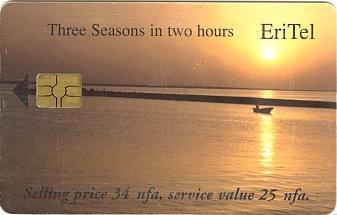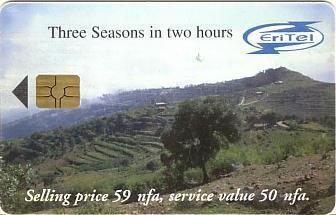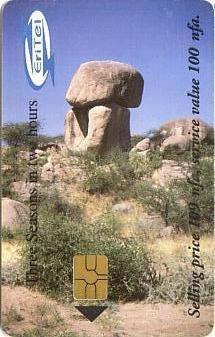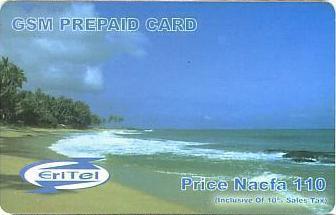| Eritrea July 2006 | ||||||
| Mon | Tue | Wed | Thu | Fri | Sat | Sun |
| 01 | 02 | |||||
| 03 | 04 | 05 | 06 | 07 | 08 | 09 |
| 10 | 11 | 12 | 13 | 14 | 15 | 16 |
| 17 | 18 | 19 | 20 | 21 | 22 | 23 |
| 24 | 25 | 26 | 27 | 28 | 29 | 30 |
| 31 | ||||||
| Eritrea August 2006 | ||||||
| Mon | Tue | Wed | Thu | Fri | Sat | Sun |
| 01 | 02 | 03 | 04 | 05 | 06 | |
| 07 | 08 | 09 | 10 | 11 | 12 | 13 |
| 14 | 15 | 16 | 17 | 18 | 19 | 20 |
| 21 | 22 | 23 | 24 | 25 | 26 | 27 |
| 28 | 29 | 30 | 31 | |||
| next page | previous | |||||
| July
and August 2006 Festival Eritrea 2006 |
||||||
 |
||||||
Massawa Eritrea - August 5th 2006
In a small bookshop in the Expo area I bought a map of Massawa showing places of interest. I start my walk in the Batse port district, trying to locate the first two buildings, close to the port entrance. I show the Massawa map to two men sitting in front of an office. They carefully study the map and the pictures of the historic buildings. They gesticulate to follow the street on my right and then again turn to the right.
The historic buildings with their beautiful carved coral block entrances are used as apartments. A woman is making coffee on a small brazier, and invites me to join her and her two neighbors. First I refuse, but temperatures again are killing, even early in the morning, so I decide to make it a social tour instead of a walking tour. The women introduce themselves as Defan, Ghidey, and Azieb.
I sit down on the edge of the bed, standing in front of the house. The women give me a small seat, but it is to low for my long feet, so I choose to sit on the bed instead. I guess the women don't want their guest to share their bed. They order Defan's daughter to get me a proper seat. Saron gets a nice sofa from the house.
Saron is the 14-year-old daughter of Defan. She tells me she would like to come to Holland. Who doesn't? We talk about Holland and Eritrea. About the cold climate and the icy hearts of the people in Europe. I drink three cups of coffee with the women and promise to call Saron on her mobile phone, when I'm back in Holland.
I walk a few blocks further and wonder how I can get to the roof of the building to make a nice picture of the former Banco d'Italia. Again two women invite me to sit down, offering me a chair. One of the women is making injera. None of the women speak English. So I just rest and watch their daily life.
I pass the remainders of Massawa's fierce history. As one of Ethiopia's vital links to the outside world for trade, and hosting the Ethiopian navy, Massawa faced extensive bombing during the 1961 -1991 struggle for Eritrean independence and the liberation of Massawa. The destruction of war has still not been cleared in the Batse residential area. Where bombsites have been cleared, large open areas remain.
I spent the morning in the Batse port district of Massawa, resting in the shade, moving a few blocks every once and a while. Generators of the ships and Tigrinya music from the houses, mix with the screams of the crows that fly by looking for food. Cats roll themselves through wet and cool spots on the ground.
In front of a small bar I order a Coke, and a second one for another visitor. A woman on the other side of the street bakes injera's with surprising efficiency. She is a professional baker, selling her products in this neighborhood. Women pass to buy her products. I am invited to buy one too. No thanks, not in this climate.
Women in colored robes are watching me from their second floor apartments, and want me to come upstairs to drink coffee. I politely refuse. They look too sexy, and this is a port district, so I guess they do not want me to talk about politics.
Around noon temperatures are passing 40C (104F) and it is time to shelter for the sun. In a snack bar equipped with four ceiling fans, I have lunch. But at 12:00 the windows are blinded with wooden shutters and the restaurant closes. For the servants it is time for their siesta. I have to move on. But since I am not used to this extreme climatological circumstances, it will be a short walk to the next bar.
My next stop is on the terrace in front of the Savoya hotel. Here I meet Isak, who tells me he collects Eritrean telephone cards. He has thousands of them and asks me if I am interested. I buy 25 sets of three EriTel telephone cards from his collection, and I promise him to find a buyer for the sets when I am back in Holland.
So if anyone reading my travel dairy is interested in these EriTel telephone cards, please do not hesitate to contact me. For a few dollars or euro's I will send you one of the 25 sets of Eritrean telephone cards.
Everyone is resting, except a few children. playing on the dusty alleys of downtown Massawa. They want to shake hands, calling me "China". I am afraid of the bacteria, but it would be rude to refuse their friendly gesture. And there is always some potable water to wash ones hands.
While the local population is having their siesta, Massawa looks like a ghost town. The streets, even the wider ones, are completely deserted. The heat is now almost unbearable when walking, or at least very unpleasant. At 15:00 I return to the bus station with one of the yellow Massawa taxi buses, to find the air-conditioned bus of the Harat Travel Agency that will bring me back to Asmara.
Cultural heritage. Batse port district - Massawa Eritrea.
Cultural heritage. Batse port district - Massawa Eritrea.
Coffee ceremony with Defan Zeras - Massawa Eritrea.
Carved interior shelving of a residential house in the port district, destructed
during the 1961 - 1991 struggle for Eritrean independence - Massawa Eritrea.
Carved decorations of door and window openings.
Batse port district - Massawa Eritrea.
Woman making injera. Batse port district - Massawa Eritrea.
Two story traditional residential house. Batse port district - Massawa Eritrea.
Woman making injera. Batse port district - Massawa Eritrea.
Cultural heritage. Batse port district - Massawa Eritrea.
Mosque - Kutmia Massawa Eritrea.













